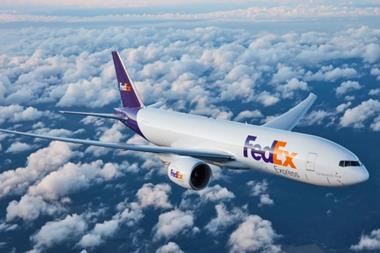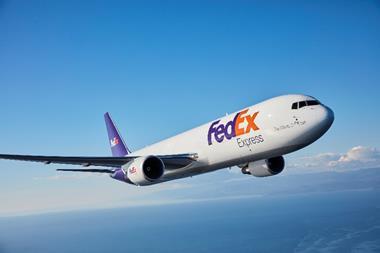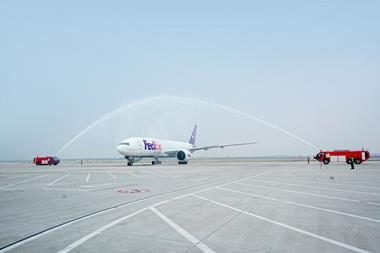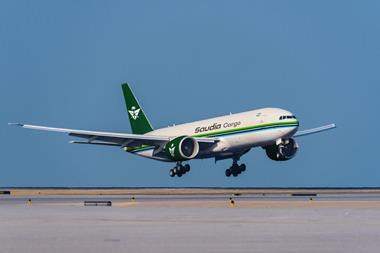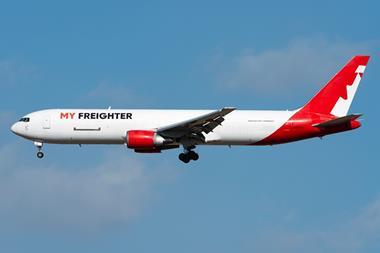
Efficient and flexible logistics solutions are key to growth as air cargo business in Asia Pacific continues to grow ahead of other regions worldwide.
In today’s fast-paced, competitive market, efficient logistics plays a pivotal role in driving business growth. As companies navigate the challenges of global supply chains, robust logistics support becomes a key differentiator.
Recent data from IATA shows Asia Pacific leading in air cargo growth with a 13.4% year-on-year increase (October). This surge in demand highlights the urgent need for strategic investment in supply chain and logistics capabilities.
Across APAC, businesses are seeing shifting consumer demands, rapid technological advancements and evolving market conditions. To stay ahead, they need logistics solutions that are not only efficient but also flexible enough to adjust to these changes.
Integrated logistics providers play a crucial role by offering a one-stop-shop that caters to everything from everyday small packages to complex, oversized freight shipments.
This includes handling palletised cargo, shipments over 68 kg, and items exceeding standard size restrictions. Such support is vital for companies engaged in international trade, where navigating complex regulations and overcoming cross-border hurdles are part of the daily landscape.
According to a recent United Nations Development Program (UNDP) report, compliance with export procedures is a major barrier to the international growth of micro, small, and medium enterprises (MSMEs) in Southeast Asia. MSMEs account for 97% of all businesses in the region and contribute 10-30% of exports, according to UNDP.
For these businesses, efficient logistics solutions are crucial to expanding their global reach. SMEs that require flexible logistics solutions as they scale will benefit from an integrated service provider, offering one-stop-shop solutions, helping streamline operations, and navigate complex customs regulations, allowing businesses to focus on growth rather than the complexities of logistics.
Expertise curbs delays
As businesses expand, their logistics demands grow, particularly in high-activity trade corridors like China and Southeast Asia. Trade between China and ASEAN countries has surged year-on-year, with growth in electronics, machinery, and agricultural exports.
With southeast Asia’s economic rise, nations such as Vietnam, Indonesia, Malaysia, the Philippines are experiencing significant cross-border activity, further highlighting the need for agile logistics partners that can scale services as trade volumes fluctuate.
Reliable, customised logistics solutions are critical in this environment. By selecting carriers offering tailored services, like door-to-door and airport-to-airport options, businesses can ensure smoother cross-border shipping. A robust logistics network has both scale and local expertise, that helps prevent delays that could lead to financial losses and diminished customer satisfaction.
Transparent cost structures also play a key role. While freight forwarders may involve multiple carriers and hidden fees, full-service integrators maintain end-to-end shipping control, allowing for clearer pricing and greater visibility into logistics expenses.
This transparency enables businesses to make financially sound decisions, identifying opportunities for efficiency while aligning with budget goals. Balancing cost efficiency and high-quality service, not only meets immediate operational needs but also establishes a strong foundation for long-term success in an evolving global marketplace.
High-growth businesses with international sales often rely on small logistics teams that are tasked with big responsibilities, a challenge that can hinder the expansion of SMEs
Today, technology is reshaping logistics, enabling seamless, proactive shipping solutions. Advanced tools can use sensors and AI dashboards to provide real-time tracking and predictive insights, offering precise monitoring of sensitive, high-value shipments.
For industries such as high tech and healthcare, where tight delivery timelines are critical, these tools provide accurate tracking, real-time notifications, and customisable delivery preferences—improving transparency and control.
Beyond technology, dependable customer service and clear communication play key roles in differentiating logistics providers. With these capabilities, SMEs gain greater control and confidence, ensuring faster issue resolution and uninterrupted operations. This allows businesses to focus on scaling, growth, and innovation, knowing their logistics are in capable hands.
Successfully managing complex logistics goes beyond daily operations; it requires a provider that adapts to shifting market needs with strategic, forward-thinking support.
Leveraging these capabilities positions APAC businesses to stay competitive in an ever-evolving global market, while being confident in their ability to scale and adapt effectively to change.





